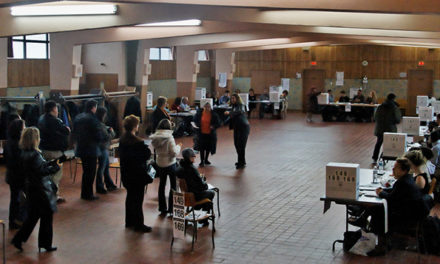Although I am not a certified tour guide, I often take the pleasure of pointing visitors their way around campus. Recently, I had the chance to talk to a middle-aged couple scouting the campus for their son. Our discussion fell on inclusivity, and we talked about the enormous diversity at Emory, of which I am quite proud. I myself hail from Kazakhstan; though I was born here in Atlanta, I was raised in Central Asia from the age of three. Having related this to the couple, they asked me, “Do you feel accepted?” That question hit me, as the saying goes, like a ton of bricks. Accepted, I thought, turning the word over in my mind. “Yes and no,” was my reply. They raised their eyebrows, prodding for more. I explained to them the Emory dilemma.
Emory is inclusive; it is accepting, and it is supportive. Gay, racial minority, disabled – you will find a acceptance and love at Emory. Plurality here, as it is at most colleges, is rampant. Let me explain my choice of words. You see, there is tolerance, and then there is tolerance to the point of intolerance. I saw this with the Chick-fil-A controversy. People will tolerate anything, it seems, but intolerance. This, theoretically, should be a good thing: but I so often see it misused, abused and misunderstood, that I begin to wonder. At Emory, I feel persecuted. Not because I am an extreme liberal, have crazy ideas about reform or want to plunge the world into anarchy; on the contrary, I feel at Emory those people are often the most accepted, likely because they are the most accepting. I, however, am a conservative. I have, apparently, very antiquated, impractical and small-minded ideas about the way things should be done. I don’t shove them down anybody’s throat; they are my personal convictions, convictions that have been held in this country for centuries. I don’t like to tell people about them, because the response is usually negative: how dare you say someone else could be wrong?! As if everybody is right, even though two people have conflicting ideas. As if I’m backward for believing that’s even a possibility.
Every day, it seems liberalism is being shoved down my throat, while the liberals themselves claim that everybody’s ideas are valid – except mine, apparently, because, if acknowledged, they might invalidate others’. I won’t even mention them in this article, because of the firestorm it would cause and the animosity I would face from others – people friendly to equally extreme ideas if they are more inclusive. This, to me, is flagrant hypocrisy.
Several months ago, I wrote an article defending Chick-fil-A and Dan Cathy’s right to disagree with same-sex marriage. I researched extensively on the subject and found that a lot of his purported crimes had been blown significantly out of proportion, and allowed to overshadow the generous donations he makes to charities annually, that utterly dwarfs any contributions to alleged gay hate groups. Naturally, I vented my frustrations in an article. I thought it was very reasonable and well-laid-out, but from the maelstrom of hateful, bitter, and vindictive comments it received, I began to wonder if I hadn’t penned my first gay-hate piece.
Throughout my first semester at Emory I was accused of misogyny, homophobia, plain ignorance and stupidity. I try not to be any of those things, and fail to see where I differ in relation to my peers. While I respect and admire liberals who have deep convictions of their beliefs and actively seek change, I feel like too many at Emory – and college in general – prefer taking the easy road – accepting liberalism because it offends no one, validates everyone and requires for its beliefs not support but a lack of support for other beliefs. I want to challenge Emory students to think for themselves, weigh options and arguments and come to their own conclusions. Sometimes it is worth offending some to stand for one’s convictions.
Jonathan Warkentine is a College freshman from Almaty, Kazakhstan
The Emory Wheel was founded in 1919 and is currently the only independent, student-run newspaper of Emory University. The Wheel publishes weekly on Wednesdays during the academic year, except during University holidays and scheduled publication intermissions.
The Wheel is financially and editorially independent from the University. All of its content is generated by the Wheel’s more than 100 student staff members and contributing writers, and its printing costs are covered by profits from self-generated advertising sales.




True. And obviously you have been offended by the progressive vibe you sense here.
“Liberalism” emphasizes personal liberties above the good of any collective, so in that sense, I am also tired of liberalism.